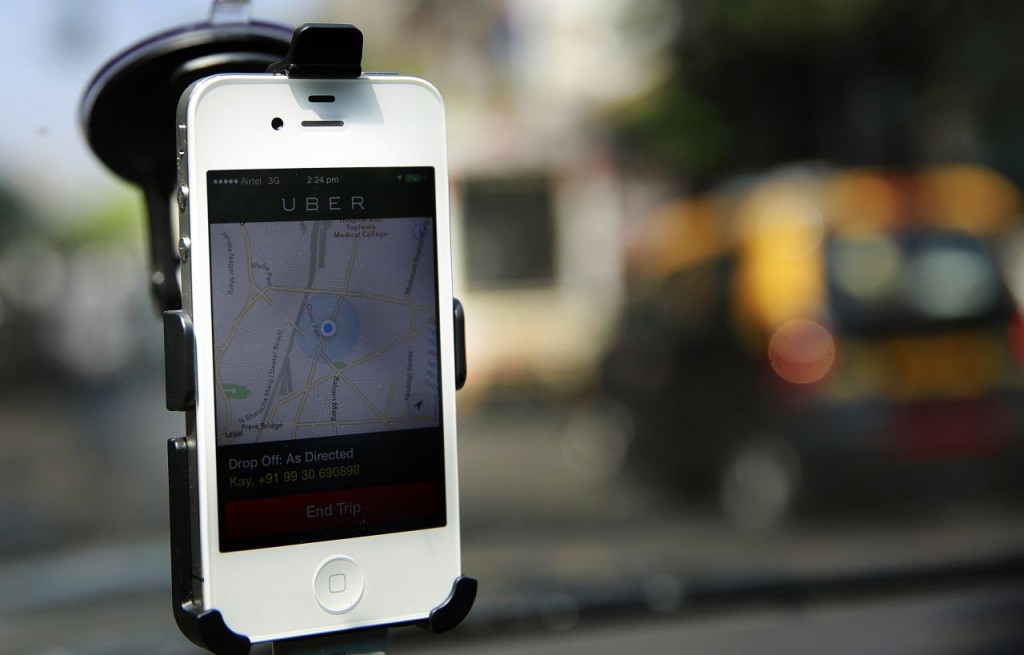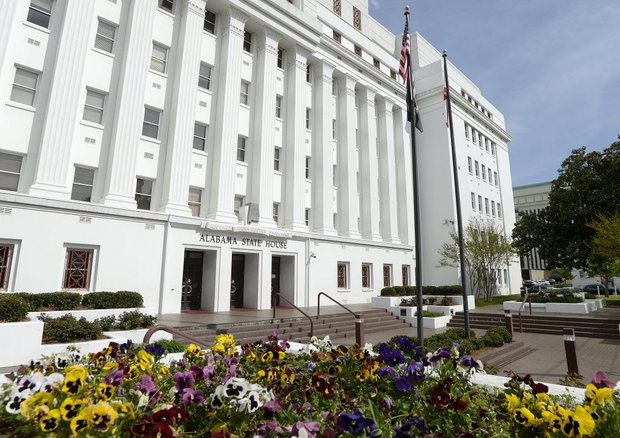Tax proposal would cover most common adult vices

Alabama Today has learned that Rep. Jack Williams is looking into a way to restructure state statutes that govern materials deemed for adult consumption only, such as alcohol and tobacco, to include pornography and institute a tax on them going into the Special Session on budget. It’s not possible to tax pornography individually since such material can’t be taxed based on content. However, a restructuring of materials for adult consumption would allow one tax in statute for anything that requires proof of being older than 18. NBC News last year reported on the profitability of pornographic materials, “Globally, porn is a $97 billion industry,” according to Kassia Wosick, assistant professor of sociology at New Mexico State University. Between $10 billion and $12 billion of that comes from the United States. Revenue from traditional porn films has been shrinking, though, because of piracy and an abundance of free content on the Internet. Williams said he’s “Not willing to tax Pepsi if I’m not going to tax Playboy and Penthouse, too,” a reference to another tax proposal that is being discussed. Whether such a proposal will make it and how other members would support it remains to be seen. Alabama Today will continue to add updates to this proposal and others as they’re floated and introduced.
New law reverses controversial “innovator liability” high court ruling
Manufacturers of brand-name products cannot be held liable for the effects of generic versions they don’t make or sell, according to a law signed by Gov. Robert Bentley last week. Senate Bill 80 reverses a controversial product liability ruling from the Alabama Supreme Court. In Weeks v. Wyeth, the court ruled brand-name drug makers could be held liable for copycat versions of their products. The plaintiffs in Weeks sustained injuries due to long-term use of a generic version of the drug Reglan. Though Wyeth Pharmaceuticals neither made nor sold the version of Reglan that the plaintiffs ingested, the Alabama Supreme Court said that the company was responsible for its effects. At the time of the ruling, The Wall Street Journal editorial board criticized the court’s “bad judgment,” warning that it “contradicts the overwhelming trend in federal and state courts on innovator liability.” AL.com covered the original ruling and quoted Justice Michael Bolin’s opinion that the court’s decision was limited to the pharmaceutical industry: “Nothing in this opinion suggests that a plaintiff can sue Black & Decker for injuries caused by a power tool manufactured by Skil based on labeling or otherwise,” Bolin wrote. However, in a national report on court imbalances, the American Tort Reform Foundation called the Alabama court’s decision “irresponsible” and claimed it would “effectively force innovating companies to act as insurers for their generic competitors’ products by diverting vast sums from research and development and spending them instead on litigation.” The House and Senate passed companion legislation by an overwhelming margin: by respective votes of 88-7 and 32-9. Sen. Cam Ward sponsored Senate Bill 80; in an interview with The Associated Press, he said it would benefit not only pharmaceutical companies but all manufacturers in the state. Rep. Jack Williams, chair of the House Commerce and Small Business Committee, sponsored House Bill 110 and said, “This State Supreme Court ruling threatens Alabama’s ability to compete with other states in recruiting manufacturers in the automobile industry, the aerospace industry, the pharmaceutical industry and just about any other you can imagine.” Williams saidd, “When a company invents a product, it should not be liable if a third party replicates the product and is later sued by a consumer as a result.” The new law will go into effect this year.
Uber, Lyft ridesharing in Alabama gets mixed reaction from lawmakers

Lawmakers can’t agree whether bringing an app-based ride-hailing service like Uber or Lyft to Alabama is a good thing. Just this week, House lawmakers declined to vote on legislation by Rep. Jack Williams that would have forced the companies to operate under greater state supervision. Legislators’ responses to the bill were mixed, according to reporters at the hearing, ranging from concerns over sexual assaults of passengers to the low proposed registration fee. That may not be surprising, since the public is reporting mixed views on ridesharing. Uber and Lyft are mobile-app based ridesharing networks. In a nutshell, they provide passengers who need a ride with a driver able to provide it. Passengers can use a smartphone to schedule a ride alone or to arrange to share with several strangers headed the same way. Riders in major cities worldwide are already using the service. Though both companies are privately-owned and not required to issue financial projections, Uber is projected to earn upward of $10B in 2015; Lyft is expected to generate $1B in revenue. Uber has already made several attempts to break into Alabama markets: Tuscaloosa, Huntsville, Birmingham and Auburn. Last year, Uber launched a social media campaign to rally supporters in Birmingham to the idea and block the city’s attempt to add regulations to their model. Hundreds of tweets using the hashtag #BirminghamNeedsUber showed overall support from would-be passengers. Birmingham resident Amanda Watkins tweeted “Friends in Alabama: If you want to have a good time in Birmingham and a safe ride home, then support @Uber! #BirminghamNeedsUber” In Wednesday’s hearing, Hoover City Council member John Lyda reportedly said that he was in favor of bring the model to the state, saying it would bring “choice and competition” to his residents. Former driver Harry Poole said, “When I was in Auburn, everybody loved Uber,” and that parents would often tell students to call Uber rather than a traditional taxi service. But some have voiced concern over Uber’s tiered approach to service. In an interview, Birmingham City Council president Johnathan Austin said that cheaper UberX version was problematic because of lower driver requirements and training: “We want Uber but With UberX you just don’t know because it’s a different model. So you could have a driver who might not have been trained, you could have a driver who does not know the city.” The company maintains that its insurance and training requirements help to ensure passenger safety. “All uberX rides are insured up to $1M per incident–twice what is required of taxicabs in Birmingham,” Uber officials said in that same story. “Drivers must pass rigorous background checks at the county, state and federal level before they are ever allowed access to the technology.” Despite the company’s assurances, there have been several reports alleging driver misconduct in Alabama and nationwide. The company’s launch in Tuscaloosa quickly devolved into a fight with city officials over ordinances that govern taxi services. Soon after that, an Uber driver was caught in an undercover sting and charged with ordinance violations along with several drug and alcohol offences. Uber and Lyft have also been the subject of lawsuits by passengers, with allegations including negligent driving, assault, and sexual assault. In fact, Birmingham City Councilor Kim Rafferty cited concerns over passenger safety in a leaked email exchange with Mayor Walt Maddox. In her email, Rafferty suggested the formation of an ad-hoc committee to work with ridesharing companies in and out of the state on a model that meets regulatory and safety concerns. “Change in the on-demand for hire transportation industry is coming,” she said. “We need to be not just prepared but proactive.” No vote from lawmakers on Wednesday could mean that – for good or ill – change is unlikely to come to Alabama in this legislative session. In the interim, Uber has taken another approach to attracting local fans. The Uber in Alabama Twitter accounted tweeted on Friday, “Though regulations prevent us from connecting you with rides in #Birmingham, we can still connect you with giving” with a link to have an Uber driver pick up donations and drop them off at a Goodwill center in Birmingham.
Filibuster delays House decision on voter registration

Debate on a set of voting rights bills was delayed again Tuesday as House Democrats took turns speaking in an effort to filibuster. The bills would push the deadline to register to vote from 14 days to 30 days before an election, require photo ID with all absentee ballot applications, and require county election boards to purge voter lists of possibly deceased or ineligible voters. As speaker after speaker took to the podium Tuesday during the scheduled motion to adopt a special calendar, House Democrats framed the measures as an effort to further challenge – rather than expand – voter rights in Alabama. “Over the last election cycle, we had the lowest voting turnout in state history,” Rep. Darrio Melton said. “And that low turnout was based on the laws we already have. We need to be making this process easier, not more difficult. These new laws would only push us backwards.” Lawmakers urged the House to consider public hearings and further debate on the following proposed laws: HB 293 requires voters to submit photo identification with absentee ballot applications. Under the proposed legislation, no ballot could be issued until the photo ID requirement is satisfied. HB 323 outlines how each county’s board of registrars will investigate reports that a registered voter has died or moved out of their precinct. HB 104 changes deadlines for registering or updating voter information from 14 to 30 days before Election Day. In addition, the measure prohibits campaign materials or partisan outreach within 150 feet of a polling place. Currently, materials and campaign workers are allowed within 30 feet of the polls. By contrast, the Kennedy-McClammy Act, HB 344, sponsored by Rep. Mike Jones, passed to the Senate with bipartisan support (99/1). The act prescribes a comprehensive list of felonies that involve moral turpitude, or conduct contrary to standards of justice or morality. Under Alabama’s constitution, those convicted of a felony involving moral turpitude are disqualify from voting. County election boards are currently free to adopt their own definitions, which can lead to subjective treatment of ex-offenders and uneven reinstatement of voting rights. With adoption of a uniform definition, those convicted of a felony would have clear guidelines for getting their vote reinstated. Because the speeches took place during a routine calendar motion by the House Rules Committee – not during the debate on the bills themselves – there was little opportunity for House Republicans to counter arguments on the provisions in each bill. At the start of the session, Representative Jack Williams told AL.com that he sponsored HB 104 after hearing from poll workers that the tight deadline made it difficult to prepare for Election Day.


